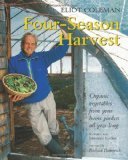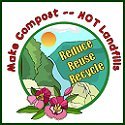You are here:
Home > Seeds > Broccoli - Italian Sprouting
Broccoli - Italian Sprouting
Brussica rapa (ruvo group)

Price Each
$1.69

Broccoli - Italian Sprouting:
The Broccoli Italian Sprouting Di Cicco, 'Brussica rapa (ruvo group)', ia European Heirloom. This very tasty broccoli produces a lot of small to medium heads with a long harvest period. If you have eaten Broccoli in Italy, you know what we say when we say you should try Di Cocco. The plants are tasty and productive. It produces copious amounts of small to medium sized well into summer. We recommend you harvest the main head when it is 3 inches in diameter. Di Cocco also freezes well.Plant as soon as the soil can be worked in the spring, 4 to 6 weeks before the average last frost. In mild climates, plant in the late fall for winter harvest. Sow successive plantings every 2 weeks throughout the cool early growing season for continuous harvest. Broccoli prefers light, loamy, well drained soils.

FREE Garden Journal!!
Join "Garden Notes" and plan for Harvest Success as you track and record your gardening progress.
Your Free Personal Garden Journal has pages for jotting down notes on the seeds you start,
your new plantings, when you fertilized, and even a graph to plot a new garden.
What's New?
"Organic food has a higher nutritional value than ordinary produce, a study by Newcastle University has found."
"A team grew fruit, vegetables and reared cattle on adjacent organic and non-organic sites across Europe.
They found up to 40% more antioxidants could be found in organic fruit and vegetables than in non-organic.
The team said the findings call into question the current stance of the Food Standards Agency (FSA), which is neither for nor against organic food."
Organic Food Gardening Guide
Free
Gardening Catalog
Click Here
Book of the Month

A book full of valuable information on how to harvest fresh vegetables and salad
ingredients literally year-round--yet without an expensive greenhouse or indoor light garden set-up.
Coleman combines succession planting (small sowings three or more times, rather than
one big endeavor) with cold-frame growing in the winter months. He includes how-tos for building simple cold-frames.
Read More...
Garden Tip of the Day










